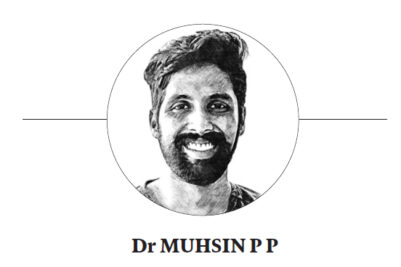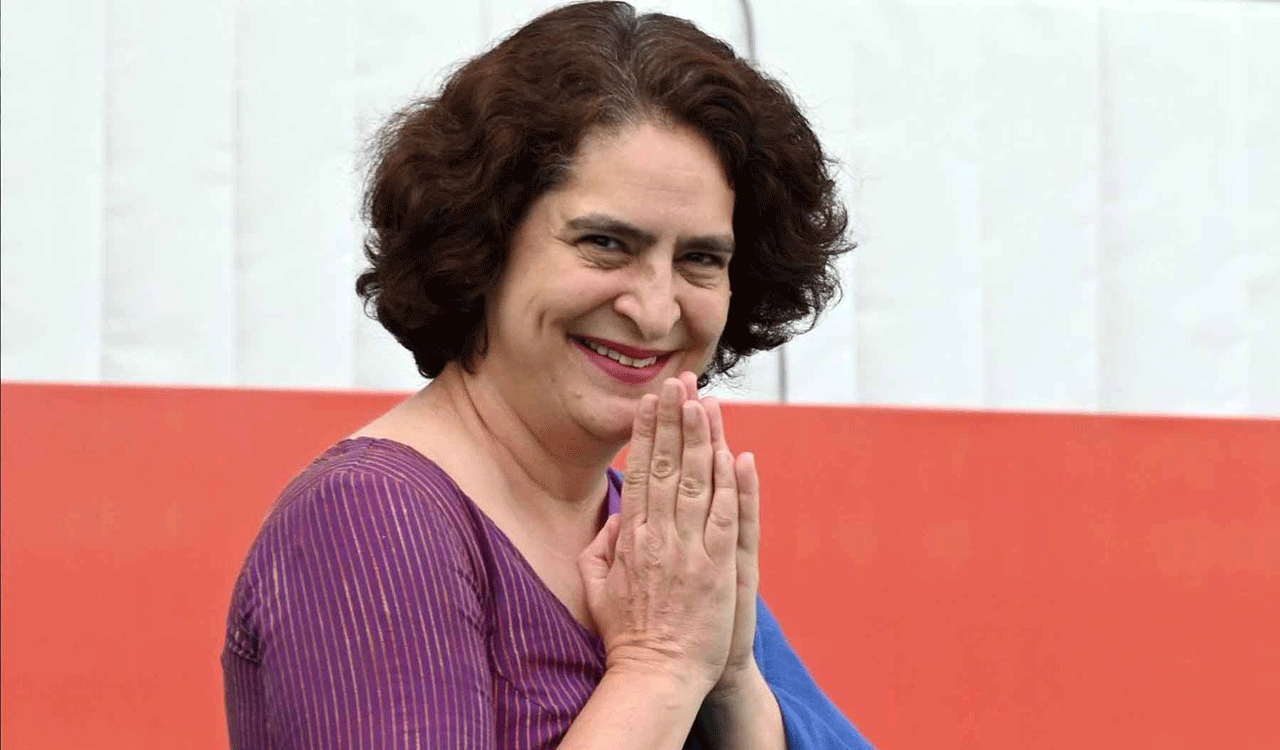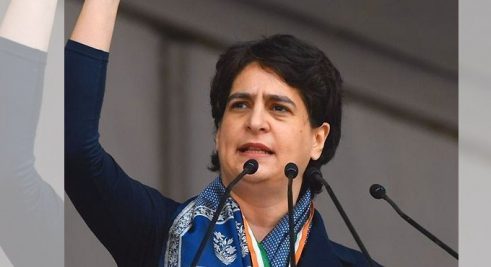Opinion: Priyanka, Palestine, Peace and Appeasement
The Congress leader’s ‘Palestine’ bag reaffirmed the persistent relevance and continuity of the Palestine issue in Indian politics

By Dr Muhsin P P
A bag carried by Priyanka Gandhi in Parliament has placed her at the centre of a political debate. The bag, featuring the word ‘Palestine’ and a watermelon symbol, became a flashpoint, attracting sharp criticism from the ruling Bharatiya Janata Party (BJP) and its supporters. If anything, it underscored and reaffirmed the persistent relevance and continuity of the Palestine issue in Indian domestic politics. However, anyone truly interested in understanding the ongoing relevance of Palestine in domestic politics must consider the current political dynamics surrounding it. Taking this approach reveals two key insights.
Also Read
First, it outlines the political mobilisation and legitimation in the routines of democratic politics. A political party’s position on Palestine can reveal its broader ideological inclinations and worldview. In this context, it ventures into the comparative realm of what each party represents. The BJP has long been pro-Israel, with its ideological alignment reflecting Zionist ethnic nationalism.
Relations with Israel
Nonetheless, in recent years, under Prime Minister Narendra Modi’s leadership, India strategically decoupled its relations with Israel from the Israel-Palestine issue, adopting a more proactive stance towards strengthening ties with Israel. In 2017, Modi became the first Indian Prime Minister to visit Israel, a historic move that was reciprocated by Israeli Prime Minister Benjamin Netanyahu’s visit to Delhi in 2018. The rapport between Modi and Netanyahu was evident throughout these exchanges, signalling a deepening of bilateral relations.
However, the parallel growth of public support for Israel under Modi’s administration has led to clashes with domestic political factions sympathetic to Palestine. Numerous arrests have been reported for individuals expressing support for Palestine, often justified under the pretext of national interest and security priorities, as exemplified by Yogi Adityanath’s proud statement that his State, Uttar Pradesh, has sent 5,600 youth to Israel for high-paying jobs.
While India’s foreign policy under Modi govt has become more pro-Israel, it has consistently upheld support for a two-State solution
Yet, while India’s foreign policy under the Modi government has become more pro-Israel, it has consistently upheld support for a two-State solution. It was only a month ago that India voted in favour of the UNGA resolution on Palestine, calling for an end to Israeli occupation.
Nehruvian Ideas
As for the Congress, the party starting from Nehru has consistently supported Palestine while adopting a more pragmatic ap-proach towards Israel. Priyanka Gandhi’s moral stance on peace likely stems from this historical position as one of the principal legatees of the Congress and Nehruvian ideas. Gandhi had previously shared social media posts condemning Israel’s actions in Gaza, referring to them as a “horrific genocide.”
Recently, Abed Elrazeg Abu Jazer, Charge D’Affaires at the Palestinian Embassy in India, met with Priyanka Gandhi to congratulate her on her election victory in Wayanad, Kerala. How-ever, there is no reason to suggest that such symbolism and genuine support cannot coexist with a strategic appeal to her constituency — where a significant Muslim population supports Palestine — reflecting both ideological consistency and political calculation that address her moral convictions alongside voter concerns.
Second, the irony of coalition politics has manifested in the form of an ontic discontinuity in the Modi government’s em-brace of Israel, which was solely shaped by Modi during his two previous terms in office. Only recently a coalition of leaders from various political parties gathered with Mohammad Makram Balawi, Secretary-General of the League of Parliamentarians for Al-Quds, a pro-Palestinian organisation, to voice their solidarity with the Palestinian cause. Notably, the Janata Dal (United), a key ally in the BJP-led National Democratic Alliance (NDA), was part of this coalition. Alongside leaders from the Congress, the Samajwadi Party (SP) and the Aam Aadmi Party (AAP), the JD(U) condemned Israel’s actions as “Zionist aggression” and a “heinous genocide” of the Palestinian peo-ple.
Coalition Politics
The JD(U) holds significant sway as a major member of the government coalition. Since Modi’s BJP lacks a sizable majority on its own, it must rely on the coalition of the NDA to advance its goals. Modi has already signalled considerable openness to ad-dressing criticism from coalition partners, as seen in the case of repealing the government’s attempt to bypass reservation policies in the recruitment of civil servants by the Union Public Service Commission (UPSC).
In this instance, strong criticism from coalition partners prompted the Modi government to direct the Department of Personnel and Training (DoPT) to cancel an advertisement issued by the UPSC for the appointment of joint-secretary-level officers and other key positions through the lateral entry process.
In that context, JD(U)’s opposition to India supplying arms to Is-rael in the ongoing Israel-Hamas conflict serves as an early indication that coalition politics will influence Indo-Israel relations. Some of the NDA allies are rooted in their regional political context, where they seek to project themselves as secular parties. If pro-Palestinian voices continue to gain momentum and support from coalition partners, it will impact the future trajectory of India’s relations with the country.

(The author is Assistant Professor (Political Science), Manipal Law School, MAHE, Bengaluru)
Related News
-
Nissan launches Gravite 7-seater MPV at introductory price of Rs. 5.65 lakh in India
8 mins ago -
Hospital sewage fuelling antibiotic-resistant bacteria in Hyderabad drains: Study
29 mins ago -
Bengaluru, Delhi-NCR account for over half of India’s AI job openings: Report
54 mins ago -
Hoax bomb threat emails trigger panic in Telangana and Andhra courts
1 hour ago -
‘Never thought he would do this’: Neighbour reveals chilling details in Indore MBA student murder case
1 hour ago -
Grokepedia an unrealistic idea that won’t work: Wikipedia Co-founder at AI Summit
2 hours ago -
ECI announces Rajya Sabha polls for two Telangana seats
2 hours ago -
Galgotias University, under fire over Chinese robodog, asked to leave AI Summit
2 hours ago




